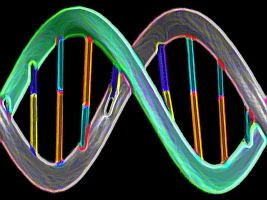28 April 2014. Diagnovus LLC, a molecular diagnostics developer in Nashville, is licensing research on food allergies to detect a severe type of allergic condition based on a patient’s genetics. Financial terms of the deal with Cincinnati Children’s Hospital Medical Center that conducted the research were not disclosed.
The test will analyze a patient’s genome to identify eosinophilic esophagitis, a painful food allergy causing inflammation in the esophagus that can lead to difficulty in swallowing, vomiting, and chest or abdominal pains. Eosinophilic esophagitis occurs more often in children and adults before the age of 50, and is often triggered by another food allergy (e.g., milk, peanuts) and sometimes airborne allergens. The company cites a study of health insurance claims that estimates the disorder strikes 56.7 per 100,000 persons, translating to some 152,000 people in the U.S.
One of the problems in treating eosinophilic esophagitis is confusion with other disorders of the esophagus, such as gastroesophageal reflux disease that cause acid reflux and heartburn. An accurate diagnosis of eosinophilic esophagitis today requires a series of biopsies that the company says still do not return accurate results.
Diagnovus says its test for eosinophilic esophagitis, called Engauge, uses a sensitive technique to detect gene expression that works with small samples of material, and is designed to be faster and more accurate than current methods. The technology still uses biopsies, but can return results with sensitivity and specificity at or exceeding 96 percent. The company cites clinical validation studies that show Engauge could distinguish patients with eosinophilic esophagitis from other disorders of the esophagus, as well as identify patients with cases of eosinophilic esophagitis in remission.
The research at Cincinnati Children’s Hospital Medical Center was conducted in the lab of Marc Rothenberg that specializes in mechanisms of allergic responses, in particular mucosal tissues in the gastrointestinal tract and lung. The lab develops targets for therapies to treat a range of allergic diseases, including gastrointestinal conditions. Eosinophilic esophagitis is a focus of the lab’s research, as well as a treatment specialty of the medical center.
Read more:
- Asthma Drug Helps Desensitize Multiple Food Allergies
- Challenge Seeks Technique to Estimate Age from DNA Samples
- Asthma/Hay Fever Genetic Risk Factors Identified
- University, 23andMe Identify Genetic Allergy Associations
- New International Food Allergy Management Study Underway
* * *


 RSS - Posts
RSS - Posts
You must be logged in to post a comment.